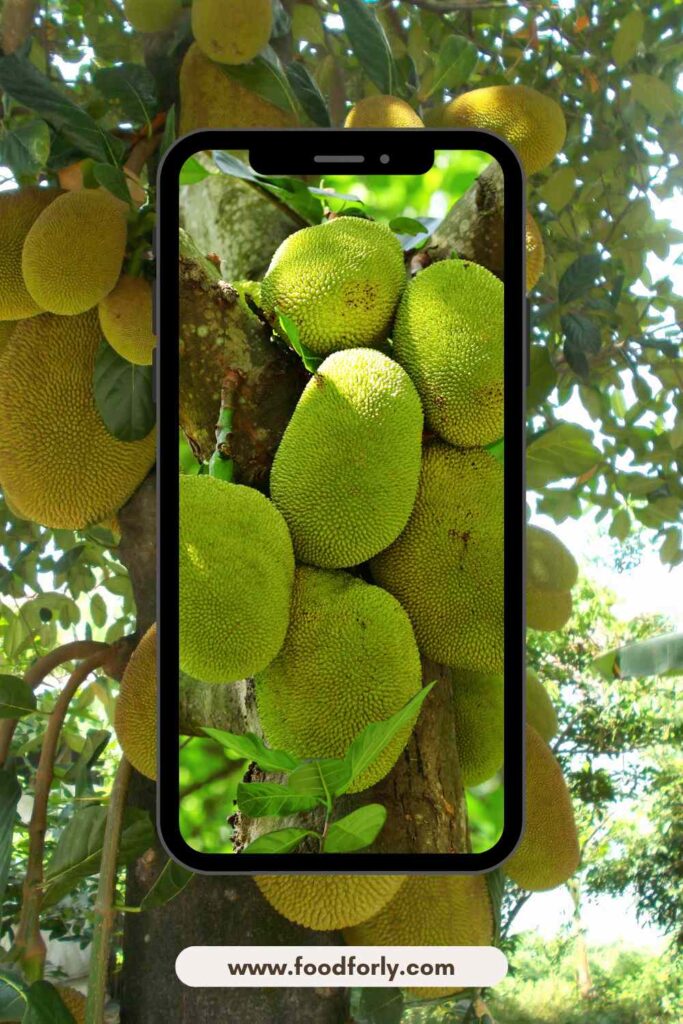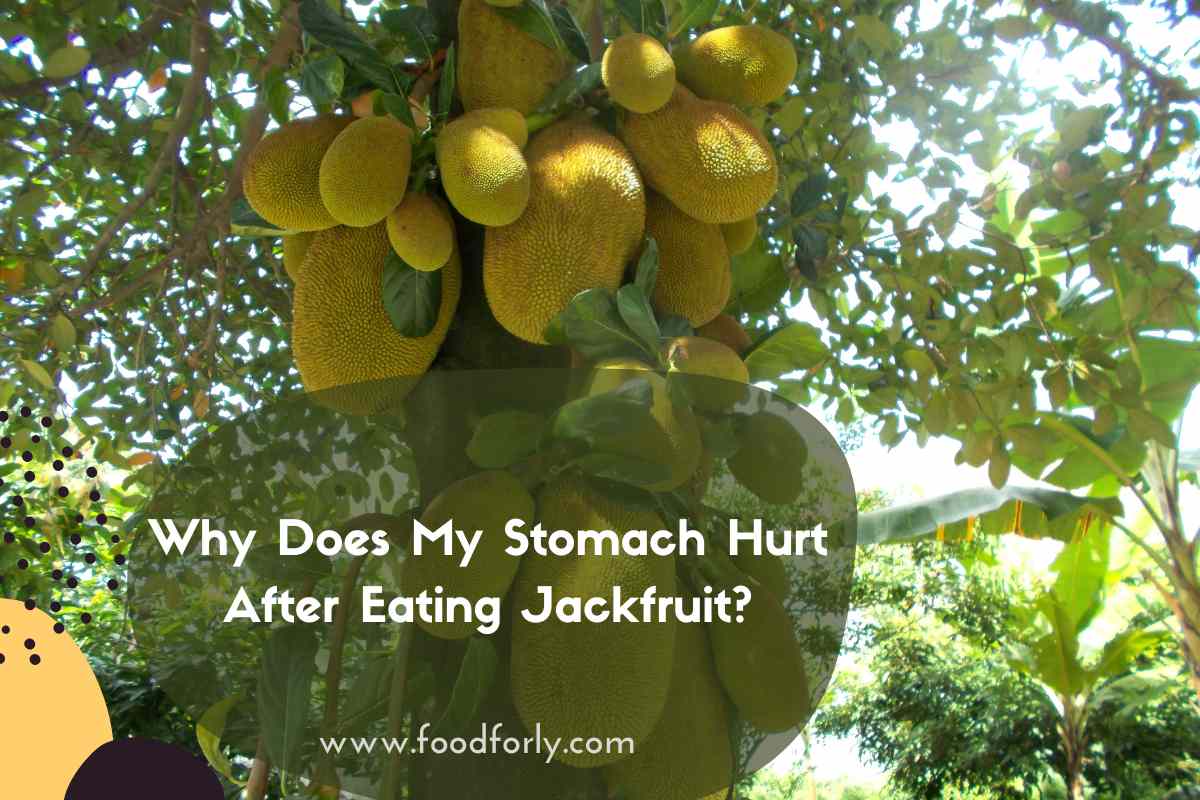Why Does My Stomach Hurt After Eating Jackfruit?
If your stomach hurts after eating jackfruit, it could be due to several reasons:
High fiber content: Jackfruit is rich in dietary fiber, which can be difficult for some people to digest. Consuming a large amount of fiber in a short period can lead to stomach discomfort, bloating, and gas.
Fructose intolerance: Jackfruit contains fructose, a natural sugar found in fruits. Some individuals may have difficulty digesting fructose, leading to gastrointestinal symptoms such as stomach pain, bloating, and diarrhea.
Allergies or sensitivities: While rare, some people may be allergic to jackfruit. Allergic reactions can cause stomach pain, nausea, vomiting, or other symptoms.
Unripe jackfruit: Unripe jackfruit contains higher amounts of starch and is less sweet than ripe jackfruit. Eating unripe jackfruit can be harder to digest and may cause stomach discomfort in some individuals.

If you consistently experience stomach pain after eating jackfruit, it is advisable to consult a healthcare professional to determine the exact cause and address any potential underlying issues. They can provide appropriate guidance and advice based on your specific situation.
Why Stomach Pain After Eating Jackfruit?
Stomach pain after eating jackfruit can occur due to factors such as its high fiber content, fructose intolerance, allergies or sensitivities, or consuming unripe jackfruit.
What Happens When You Eat Too Much Jackfruit?
Eating too much jackfruit can lead to digestive issues such as bloating, gas, and stomach discomfort due to its high fiber content. It is important to consume jackfruit in moderation and listen to your body’s signals to avoid overeating.
Why Does Jackfruit Make My Stomach Hurt?
Jackfruit may cause stomach pain in some individuals due to its high fiber content and the presence of fructose, which can be difficult to digest. Additionally, consuming unripe jackfruit can contribute to stomach discomfort.
How Much Calories In Jackfruit?
The number of calories in jackfruit can vary depending on the specific variety and the form it is consumed in (fresh, canned, dried, etc.). On average, raw or fresh jackfruit contains approximately 95-150 calories per 100 grams.
This calorie content is relatively low compared to other fruits. It’s worth noting that calorie content can vary slightly depending on the ripeness and size of the fruit.
If you are consuming jackfruit in a different form, such as canned or dried, the calorie content may differ, so it’s advisable to refer to the nutritional information on the packaging for accurate details.
What Not To Eat After Eating Jackfruit?
There are no specific foods that you need to avoid immediately after eating jackfruit. However, it’s generally a good idea to give your digestive system some time to process the jackfruit before consuming heavy or greasy foods.
This can help prevent potential discomfort or digestive issues. It’s also a good practice to listen to your body and avoid consuming excessive amounts of any food, including jackfruit, to maintain a balanced diet.
If you have any specific dietary restrictions or health conditions, it’s advisable to consult a healthcare professional for personalized advice.
How To Eat A Jackfruit?
Eating a jackfruit can be a fun and unique experience. Here’s a general step-by-step guide on how to eat a jackfruit:
Choose a ripe jackfruit: Look for a jackfruit that has a yellowish or golden color and gives off a sweet aroma. A ripe jackfruit will have a slightly soft texture when gently pressed.
Prepare the jackfruit: Place the jackfruit on a cutting board and use a sharp knife to make a lengthwise cut. Be careful as the jackfruit can be quite large and heavy. Some people prefer to oil their hands and knife to minimize stickiness.
Remove the pods: Once the jackfruit is cut, you will see the pods or bulbs surrounded by fibrous threads. Carefully remove the pods with your hands or a knife, separating them from the fibrous core. The pods contain the edible part of the fruit.
Discard the seeds: The pods will contain seeds that are not typically eaten. Remove the seeds and set them aside if you wish to roast or cook them separately.
Enjoy the pods: The pods can be eaten fresh as they are or used in various recipes. The flavor and texture of jackfruit can be reminiscent of tropical fruits like pineapple and mango. You can also use the jackfruit pods in salads, smoothies, desserts, or as a meat substitute in savory dishes.
Remember to clean up the sticky residue left on your hands, knife, and cutting board with water and soap after handling the jackfruit.
Note: If you find it challenging to handle a whole jackfruit, you can also find pre-cut and packaged jackfruit in some stores, making it easier to enjoy the fruit without the need for preparation.
It’s always a good idea to refer to specific recipes or watch video tutorials for further guidance on how to cut and prepare jackfruit based on your preferred method of consumption.
How Many Calories Are There In Jackfruit?
The number of calories in jackfruit can vary depending on the specific variety and the form it is consumed in (fresh, canned, dried, etc.). On average, raw or fresh jackfruit contains approximately 95-150 calories per 100 grams. This calorie content is relatively low compared to other fruits. It’s worth noting that calorie content can vary slightly depending on the ripeness and size of the fruit. If you are consuming jackfruit in a different form, such as canned or dried, the calorie content may differ, so it’s advisable to refer to the nutritional information on the packaging for accurate details.




